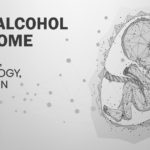
Is drug addiction genetic? Is there such a thing as an addictive personality? These are common questions you may have, and while there is a genetic component, which we talk about below, we also urge caution here. Genetic predisposition factors are just one risk factor for substance abuse, as other chronic common disorders are actual. Genetic studies are increasingly shedding light on the science of addictive disorders.
Just because a close relative struggle with addiction doesn’t mean you automatically will as well. Having a genetic factor doesn’t make addictive disorders any less treatable either. Understanding the role of heredity and vulnerability to addiction is essential from a scientific and research standpoint and uncover the root causes of addiction. However, genetic risk factors don’t have to be a deterrent to you getting effective help if you are active in addiction.
What is Addiction?
A substance use disorder or SUD means you uncontrollably use a substance despite harmful consequences. Illicit drugs, alcohol, or tobacco are substances that lead to addiction. Some of the most common types of addiction include cannabis use disorder, alcohol addiction, cocaine addiction, and opioid addiction.
Over time, as the addiction continues without treatment, it affects your daily functionality. The SUD creates problems in your relationships and most other areas of your life. You may experience changes in your behavior and thinking. The brain’s structure changes, and you may have intense cravings for the substance you have an addiction to. Your personality might change. Imaging indicates addiction can lead to changes in the parts of the brain that relate to decision-making, learning, behavioral control, memory, and judgment.
Symptoms of addiction or SUD can fall into one of four categories. These are:
- Impaired control: Hallmarks of this set of symptoms include intense cravings to keep using drugs or alcohol. You may try to stop using or cut down on your drug intake but find that you’re unsuccessful.
- Social issues: When you abuse substances, you may experience problems in your daily life. For example, you could find that you’re increasingly giving up things you once enjoyed to use drugs or alcohol. Substance use can affect school or work performance, and it tends to impact relationships.
- Risk-taking: Drugs of abuse can lead you to do dangerous things. These risk-taking behaviors might happen to get more drugs or because of their effects on you. You’ll continue to use substances even though you realize they cause problems.
- Drug effects: Physical effects stem from addiction. For example, you may notice you develop a tolerance. When you have a tolerance, you need more significant amounts of drugs or alcohol to get the same effects on your genetic predisposition you did initially. Another physical component of drug or alcohol abuse is withdrawal. If you stop using a substance suddenly and depend on it physically, you might have side effects.

Risk Factors for Addiction
The saying goes that addiction doesn’t discriminate. No matter your background, you can experience a substance use disorder, but some people are more likely than others to develop an addiction.
Environmental Risk Factors
Environmental factors can and do raise a person’s risk of developing a SUD. For example, if you grow up without parental involvement, you are more likely to experiment or take risks. If you experience neglect in your childhood, you might turn to drugs or alcohol as a coping mechanism.
The risk of addiction could go up if you experienced trauma in your childhood, such as sexual abuse or physical abuse. Other ways your environment can raise your risk of developing a substance use disorder include:
- If you face peer pressure from friends or your social circle, it can lead to experimentation with psychoactive substances.
- When you’re in a group of people with access to substances, you might be more likely to try them.
- The environmental aspects of addiction are essential to understand if you’re in recovery. You may find that you need to find new friends and avoid specific environments to reduce your risk of relapse.
Other Co-Occurring Disorders
A dual diagnosis means you have an addiction and another mental health condition. If you struggle with psychiatric disorders, like depression, borderline personality disorder, bipolar disorder, or anxiety disorder, it can be a factor for addiction or raise your addiction risk.
Addiction can also increase the severity of symptoms you experience from a co-occurring disorder. It becomes a progressive and challenging cycle when you have a mental health disorder and an addiction since both are complex diseases.
Early Use
The earlier you use drugs or alcohol, the more likely you will develop alcohol use disorders or dependence on addictive drugs. When you’re young and expose your brain to drugs or alcohol, it affects its development. You may also be more prone to developing mental health disorders because of how substances affect your reward centers, levels of serotonin, and other parts of your brain chemistry.
If you’re young and you begin experimenting with drugs or alcohol later in life, you could struggle to experience feelings of pleasure without substances. The early history of substance abuse shows a strong association with drug addiction later in life.
Type of Drug and Method of Use
Certain drugs tend to put you at higher risk of the development of addiction. For example, addictive substances like heroin and methamphetamines have a higher risk of physical addiction than marijuana or alcohol. How you use drugs is relevant. If you smoke or inject drugs, addiction is more likely to occur than taking a drug orally.
Is There a Genetic Predisposition To Drug Addiction or Alcohol Addiction?
Now, we come back to the question of is drug addiction genetic? What is it in our genetic predisposition that could create an addiction vulnerability? Why do some people develop addictions and others don’t?
Family studies and identical twins show that as much as half of your risk of developing a substance addiction depends on your genetics. As we learn more about the role of heredity in addiction, it helps us understand the best ways to target treatment. It’s also helpful to overcome the stigma of addiction. For example, addiction in humans is a complex intersection between genetics and other risk factors, but it’s not due to a lack of morals or willpower.
However, there’s not necessarily a single gene that we can pinpoint right now that determines addictive behavior. If you’re the child of an addict, you are eight times more likely to develop an addiction.

At the same time, we have to remember that if genetics make up 50% of your risk for drug abuse or addiction, the other 50% comes from things other than your genetic predisposition makeup, like your choices and how well you develop coping skills.
This complexity highlights the fact that genetics isn’t your destiny. You’re more than your genetics. You can increase your protective factors against addiction, like a healthy stress response and beneficial coping strategies. As there are growing advances in genetic testing, we may learn even more about heredity and addiction in future studies. We may also learn more about brain chemistry and how this leads to the chronic disease of addiction, impulsive behaviors, and drug-seeking behavior.
For example, researchers recently uncovered that D2, a type of dopamine receptor, may eventually be used as a way to predict if you’ll become addicted to drugs or alcohol. Current studies show if you have fewer D2 receptors, you’re more likely to develop an addiction. The more we understand biology, the more personalized addiction treatments can become. This understanding of the predisposition to addiction is a big goal of addiction research overall right now.
Never let yourself get caught up in the thought process because you come from a family with a history of addiction that you have to repeat or remain in those same patterns.
We also want you to know that while your genetic predisposition could have increased your likelihood of becoming addicted to drugs or alcohol, there are steps you can take in your life to achieve recovery. No matter your genetic vulnerabilities or background, addiction treatment can be effective. We encourage you to contact Anchored Tides Recovery at 866-600-7709 to learn more.





























